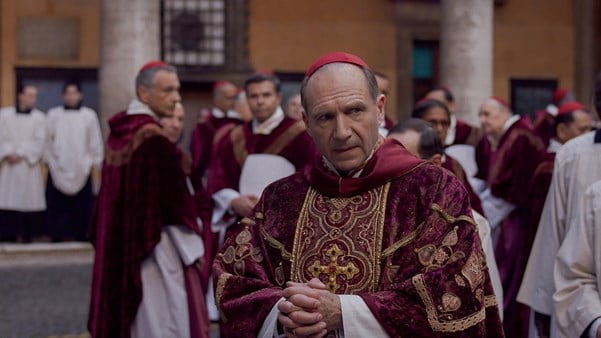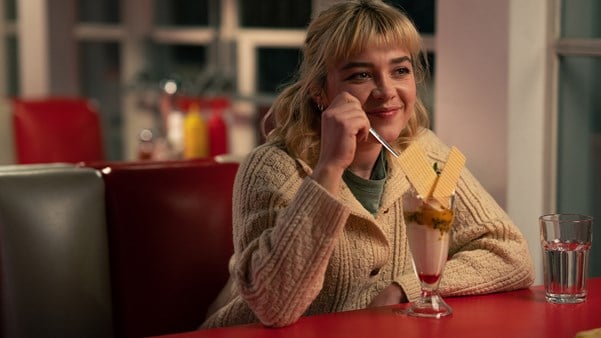Jesse Eisenberg hears voices. He heard David and Benji’s long before they became the central characters of his buddy dramedy A Real Pain. They appeared in his plays The Revisionist (2013) and The Spoils (2015), and his Tablet Magazine short story ‘Mongolia’ (2017). Now, the pair have been brought to life cinematically for A Real Pain, wherein the neurotic, rule-abiding David (Eisenberg) heads to Poland with his lovable rascal of a cousin Benji (Kieran Culkin) to pay respects to their deceased grandmother at their ancestral home, and learn more about their Jewish heritage.

GABRIELLA GEISINGER: HOW DID YOU WORK ON PUTTING THESE CHARACTERS INTO THIS VERSION OF THE STORY?
JESSE EISENBERG: I wanted to adapt the ‘Mongolia’ story into a movie. I was trying to write it, banging my head against the keyboard, when I saw an ad pop up promoting ‘Auschwitz tours (with lunch)’. I thought, ‘That’s it. That’s what the story is.’ It’s these two guys – one kind of charming but maladaptive, and one self-conscious and controlled – who were dealing with a fraught personal history, thrust against the backdrop of fraught global history. It spilled out of me after that, because it was these characters I knew inside and out, and it was this world I was fascinated with, which is Holocaust tourism. I thought I could use the tour as a screenplay structure, and it’d give the audience the feeling of real momentum and closure, even though what the characters are dealing with is less plotted.
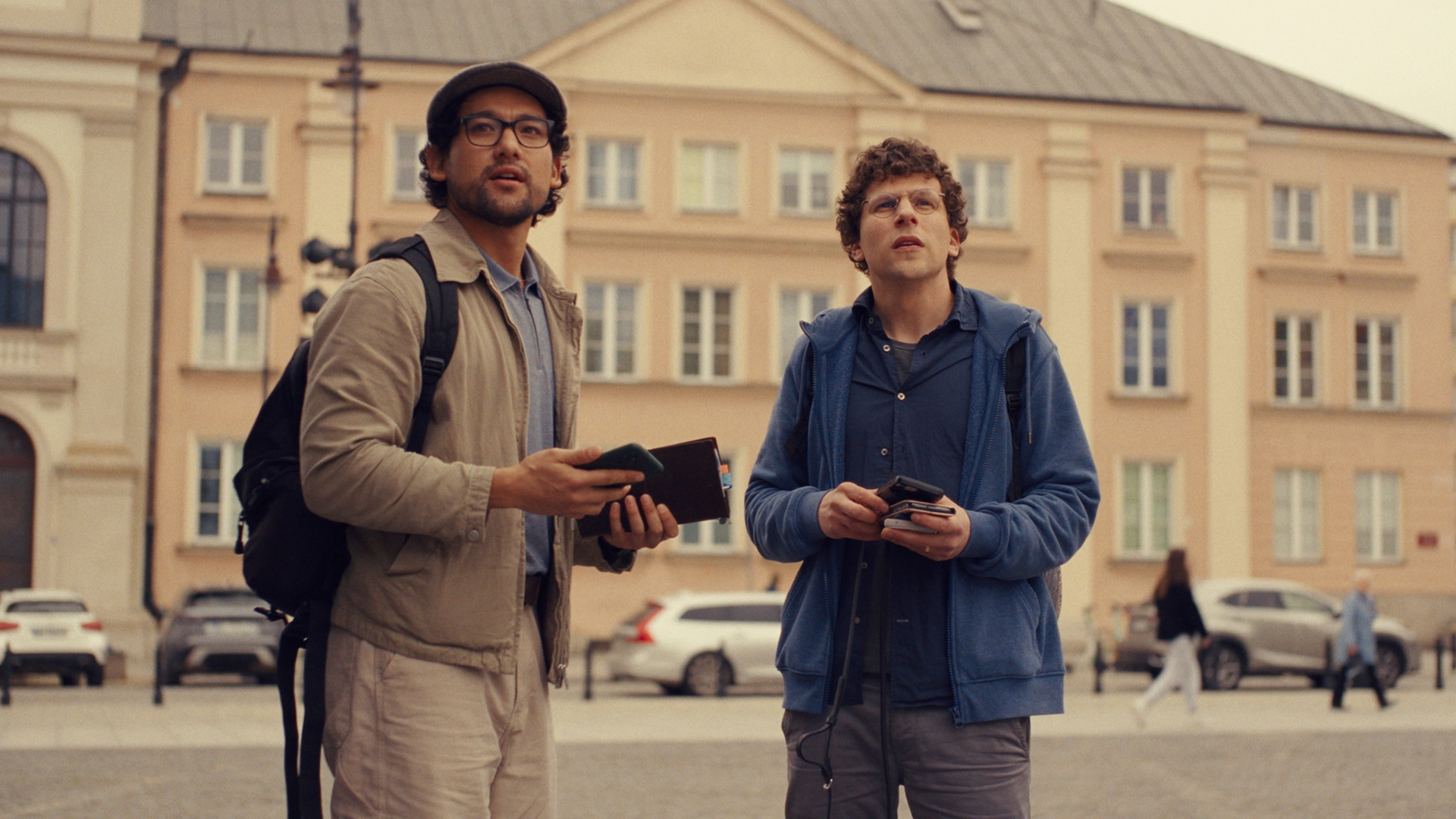
GG: HOW DID YOU GAUGE THE TONE FOR THE PROJECT WHILE WRITING INDIVIDUAL SCENES?
JE: I hear the characters’ voices in my mind, I put them in the same room together and they speak how they would speak. I’m not an idiot, I understand that this has to be for an audience. But once I come up with a dynamic that I think works, I don’t censor it. The dynamic in this movie is David trying to understand his unknowable cousin, and by extension, the audience is too. Benji says things that are offensive and caustic. But, in my opinion, he’s making really good points like shouldn’t we pinch ourselves while walking through a concentration camp, so we can at least feel something less than 100 per cent comfort? That’s what he’s bringing up, which, to me, feels right.
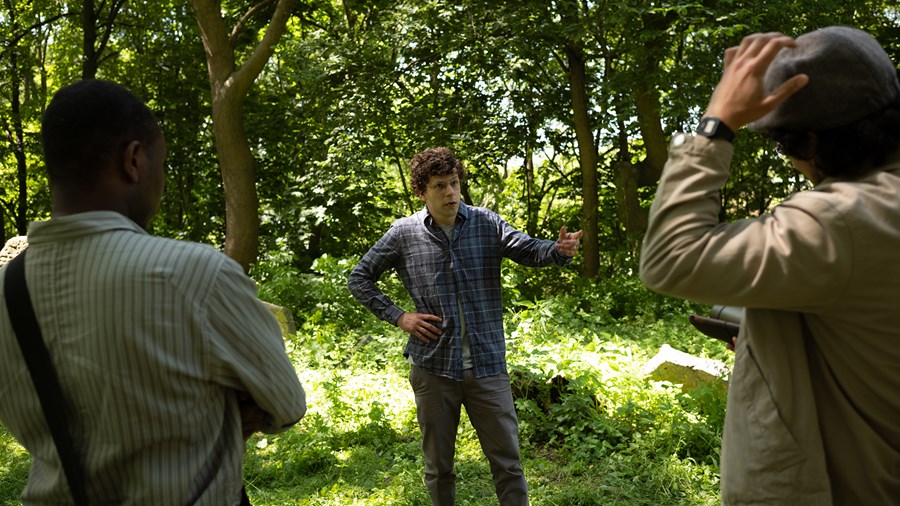
Eisenberg on the set of A Real Pain
GG: THE EMOTIONAL CRUX OF THE STORY SEEMS TO BE THE RELATIONSHIP BETWEEN THE COUSINS, NOT THEIR RELATIONSHIP TO THE HOLOCAUST.
JE: That’s what it is. I cry in the movie when the characters realise that they don’t fit anymore, and I don’t cry at the concentration camp. I do find some older people will come up to me and say the scene at the concentration camp gutted them, but that’s not the emotional emphasis of the movie. That’s why I purposely didn’t score it and there’s no dialogue.
GG: WHY DID YOU CHOOSE TO INCLUDE SOME OF CULKIN’S IMPROVISATIONS?
JE If it’d been any other actor, I would’ve asked them not to improvise. But he’s articulate in a way that’s dissimilar to me. I’m articulate in an analytical way, and he’s articulate in a bantery way. When he talks, it sounds like an urbane New York Jew to me.
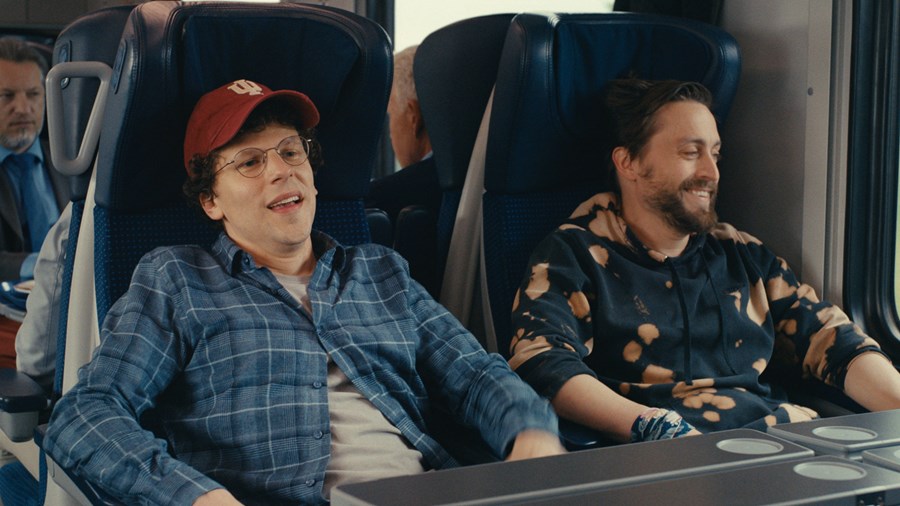
A Real Pain (2024)
GG: SPEAKING OF, AS A NEW YORK JEW, I ENJOYED THE JOKES ABOUT JEWS ONLY A JEW CAN MAKE. WERE YOU EVER WORRIED ABOUT HOW THEY WOULD LAND?
JE: It’s important for this movie to be as specific as possible. It doesn’t matter if the audience laughs. It only matters that you see one of the characters acknowledge the specificity from the other. Benji says this thing about Siamese twins, and David responds, ‘Dude, don’t say that.’ It doesn’t matter if the audience knows who he’s referring to. It matters that you see David trying to keep his cousin in check.
GG: IS YOUR FIRST PORT OF CALL FOR DEVELOPING A STORY THE CHARACTER’S VOICE?
JE: 100 per cent. Everything good I’ve ever written starts with somebody. Then I begin writing monologues from that perspective, which never make it into the final version, but allow me to live in that voice. It’s the same as acting for me. When you consider a role, you’re thinking, ‘What would I say if I was this character in a different situation? If I’m an arrogant magician, which I played in Now You See Me, how would I react just... buying groceries?’ As a writer, it’s an extension of that process. Then the challenge is to find a story that fits that voice. Sometimes that voice creates their own story because they’re such strong characters – they create a whirlwind wherever you put them. But other times it’s like, ‘There’s an interesting voice here. I need to come up with the circus around them.’ That can be a challenge. A Real Pain was a million things that I was interested in and found an outlet for. But that’s any writing project. It’s what you’re interested in – finding its outlet.
This article originally appeared in the Awards Journal. You can pick up a free copy at your local Curzon cinema while stocks last.
WATCH A REAL PAIN IN CINEMAS


